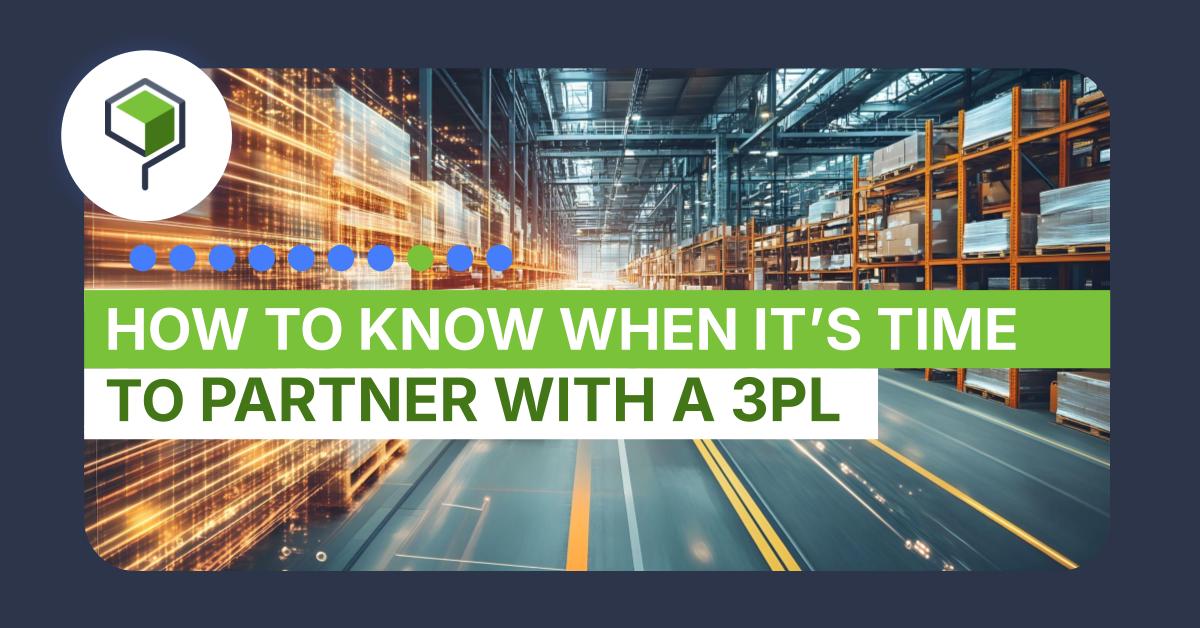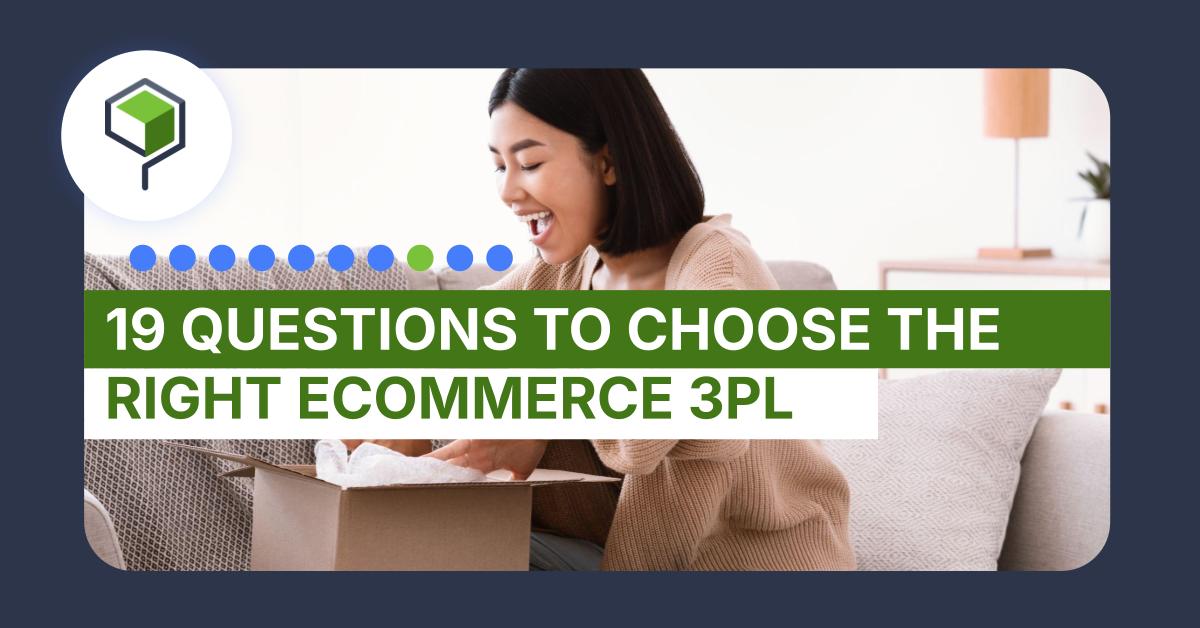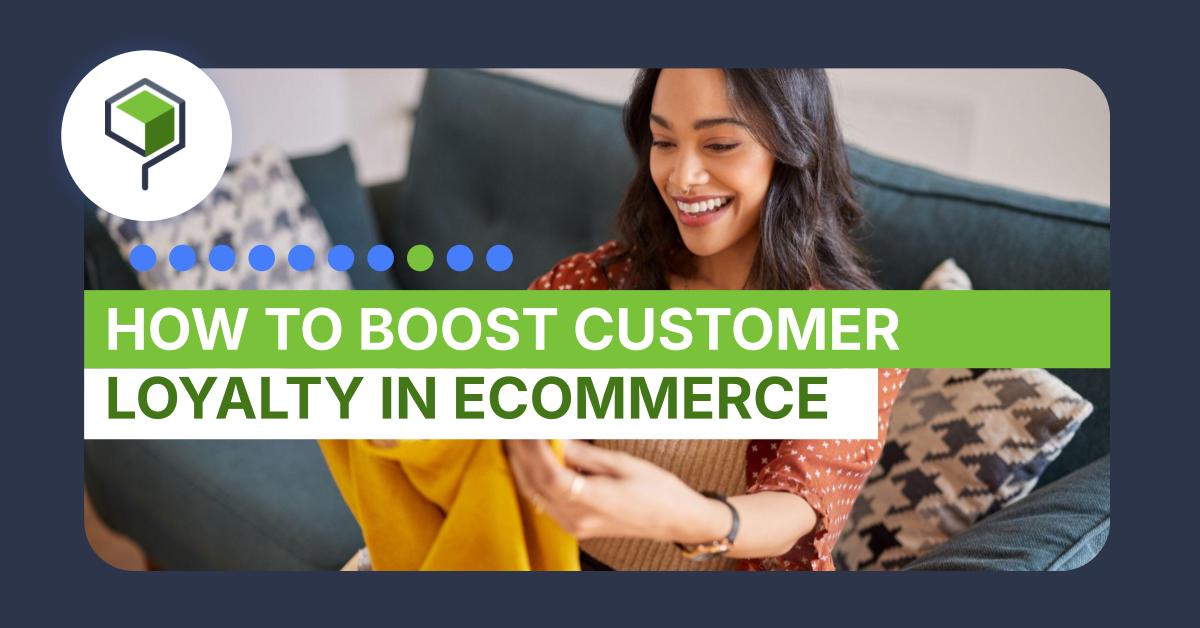How to Know When It’s Time to Partner With a 3PL

If you’re a startup business moving past competitors and making a solid name for yourself, congrats! This type of growth is inspiring, but it doesn’t come without challenges.
It could be your company feels stretched to the seams, wanting to take on more orders but can’t find a way to get there. Whatever the reason, you’re wondering how much longer your operations can continue to function like business as usual, or if now is when to partner with a 3PL.
Before you can fully know whether you’re ready to start a third-party logistics relationship, let’s tackle what a 3PL provider is first.
What Is a 3PL Provider?
The term 3PL stands for third-party logistics. Essentially, it’s like hiring a moving company for your business. But what does that mean?
Let’s say you produce trend-setting non-alcoholic beverages like our friends over at Hiyo. They can tell you firsthand that managing omnichannel sales can be challenging. But, with a trusted 3PL partner, there’s more room to reach (and exceed!) goals.
Ensuring your products are stored safely, tracking inventory and orders, packing, and shipping efficiently for on-time delivery can be a huge hassle if you’re doing it by yourself. And if you want to grow your business, it’s hard to know where to start. That’s when a 3PL partner can step in.
A 3PL takes the weight off your shoulders by handling all the logistics: storage, fulfillment, and shipping, so you can focus on what you’d rather do—expand your business.
Sounds like a dream come true, right? It can be and here’s why.
3PLs Can Help You Do More
Imagine having an extra set of hands, okay, maybe 40 extra hands on deck to help your business increase productivity, pack products better, and ship them faster while saving costs. Who wouldn’t want that?
Having a 3PL partner by your side gives you back time lost from handling logistics on your own, so you have the freedom to nurture and grow the fun parts of your business, including marketing and product development.
Many of Shipping Tree’s ecommerce customers continue to reap rewards because of their partnership with a 3PL company specializing in the online and retail space.
Storage solutions.
With more storage options and places to store product across the U.S., your business growth is never confined to the limits of your warehouse capacity. Instead, you can fulfill an order the moment it comes in, and pick, pack, and ship it directly to your customer. And when a seasonal shift increases product demand, a 3PL partner can accommodate by scaling up labor, locating extra pallets, and redistributing product to warehouse locations that make sense.
Distribution networks.
As your business grows and you expand into new markets, having access to additional distribution centers supports the very things your customers want: your product, faster. A 3PL provider with strategically located warehouses across the country is like new-found money in your pocket. How? Because the shorter the distance product has to travel to get to your customers, there’s less trucks to load and less labor required, resulting in cost savings.
Strategic relationships.
If you think back on when you started your ecommerce business and all the things involved in getting it off the ground, a lot rested on who you know. Well, the same benefits happen when you partner with a 3PL business, because they know people, who know people, and so on. And with all the leverage more strategic relationships provide, your company experiences a direct-connect to competitive shipping rates and the newest technologies, streamlining operational flows.
You might still wonder if you need a 3PL provider because, up until now, you’ve been doing it on your own. Let’s revisit how order and fulfillment look without a third-party logistics partner.
The Risks of DIY Fulfillment
Like any business decision, it’s hard to go from doing what you’ve always done to trying something new and unfamiliar. But knowing when to outsource fulfillment and logistics comes down to weighing the benefits and risks of each.
Like many small-to-mid-sized businesses, you might believe doing it all yourself is a path to automatic cost savings. The truth is, you don’t have to ship thousands of orders every month to reap the benefits a 3PL partner provides. But wouldn’t you rather put your company in a position of having the option, and shipping 1200% more orders a month?
Here are some of the ways DIY fulfillment is holding your business back.
Limited Storage Capacity
You never know when the moment you’ve been waiting for is going to happen. All the time, energy, and investments given to your product can pay off once sales volume reaches a certain level. But if your warehouse (or office space) can’t store the amount of supply your customers demand, the success you hope for will come with limits. If you’re good with sticking to those boundaries, DIY fulfillment might seem like the logical path.
But what about all the new product lines you’ve been wanting to launch, and the customers you’ve yet to reach? Unless your warehouse can handle the amount of business it brings in, as you scale, DIY fulfillment practices can end up pushing against the goals you’ve set.
Smaller Toolkit
Visibility is everything in ecommerce because your business is part of a larger supply chain—what affects one part affects others. Even if you formulate your own products, it involves sourcing and purchasing the original ingredients. Connect the two, and you’ve created a supply chain.
Having a real-time pulse on operations comes from visibility, and through integrated technologies, you’ll know when internal issues or external challenges impact order fulfillment, logistics, and customer expectations, giving you leverage to make adjustments.
What’s more, running all aspects of your business from internal-only sources can leave you vulnerable to the unexpected, with little recourse in overcoming them. Without data analytics, making retail and ecommerce decisions is like maneuvering business and your future in the dark.
Working with a logistics company that caters to the specific needs of ecommerce and omnichannel businesses, like yours, offers the flexibility you want and the proven technologies you need to keep moving business forward.
Finding the Right 3PL Fit
Once you get past resisting the need to change, it’s easier to explore your options. Before you make those phone calls or LinkedIn posts sharing you’re in search of a 3PL, take a pause and come up with a list so you’re ready for those conversations.
Provide a 3PL with your:
- Maximum SKU count
- Monthly order volume, minimums and maximums
- Product size(s)
- Product weight limitations
- Prohibited materials (potentially impacting your products)
- Technology and automation integration wants
After establishing alignment between what you need and what they have to offer, the 3PL provider still may not necessarily be your best fit. Optimal partnerships are based on meeting requirements and expectations that work for both sides and having a high level of trust.
Intuitive Trust
Some say trust is earned, not given. But when looking to partner with a 3PL business, making that decision and signing on the dotted line can feel like a leap of faith, because it is. So, how is it possible to get a jump on choosing the right 3PL provider before you really know what it’s like to work with them?
Here are some indicators to give you a heads up:
Ability to scale.
How far can they go and what are the costs to increase volume, storage, and quick-turn logistics?
Tailor-fit solutions.
Your business can change on a dime, over and over again. How quickly can a 3PL partner adapt and remain connected to your short- and long-terms goals?
Integrated technologies.
What kind of innovations, automation, and AI-generated technologies are used to streamline processes and are they value-adds or upsells?
Security and safety practices.
When you’re hiring a third-party logistics company to ease your operations load, you’ll want to avoid making assumptions. Just as no one business is exactly like another, safety and security practices in physical and virtual sites can differ. Ensure your products and customers are protected by asking for the measures a 3PL provider takes to safeguard your brand.
Track record.
There’s beauty in numbers. For the most part, they are absolute. If a 3PL company can stand on its own merit, they’ll have the metrics to show their success and that of their customers.
Responsive customer service.
Fulfillment is the first in a long series of opportunities to test the vibrancy of a 3PL provider’s processes, team, and ability to complete seamless transactions. And when there’s a glitchy website, dysfunctional shopping cart, or mislabeled order poorly packed or delivered beyond a promised store-to-door date, one disgruntled customer can sound off with the power of 1000 people. It happens. Focusing on a 3PL’s level of responsiveness is the story you want to follow.
Consistent reputation.
Warren Buffett said, “It takes 20 years to build a reputation and five minutes to ruin it. If you think about that, you’ll do things differently.”
And while you may not have the power to curb negative social commentary or scathing Yelp reviews, your ecommerce brand can rise above them by establishing core values, a strong mission, and producing quality products that stand the test of time. Your ideal 3PL partner will respect your years of hard work and represent your company to customers in the same way. They’ll work as an extension of your brand.
If after all the due diligence, information gathering, and planning analysis is done and an uneasy unshakeable feeling (gut instinct) remains, listen to it, trust it, and don’t settle. Keep searching.
What to Expect Soon After Partnering with a 3PL
Finding a 3PL provider is a journey of choice, but the final outcome can bring many rewards.
And because you’ve gone from thinking about when to partner with a 3PL to actually doing it, you and your customers get the benefits of what that relationship brings. Yes, there will be necessary adjustments made here and there, but take some time to recognize company wins too. And know that opportunities can appear as challenges, and through creative collaboration with your 3PL provider, solutions are always moments away.
To find out how quickly a 3PL partner can make all the difference to your ecommerce and omnichannel business, tell us how far you want to go.



